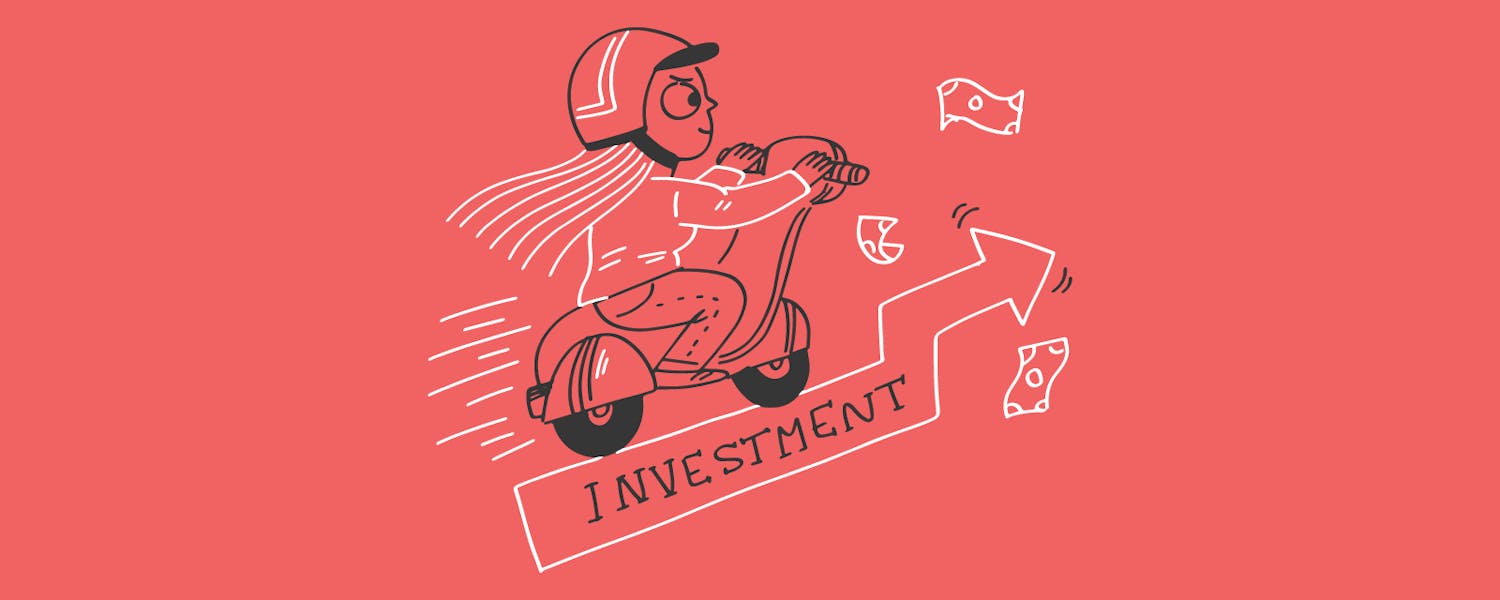Start investing without dying trying
We're facing a moment in which uncertainty is just around the corner.
Inflation is rising and the economy just entered a technical recession, which happens when a country reports two continued quarters with losses in its GDP; meaning that prices are through the roof and there’s no certainty on when they are going to stop rising.
This is why, you should have more than one source of income, because if you lose one, you'll have other sources to help you pay for your lifestyle expenses.
Many people have the misbelief that the world of investments is only for millionaires.
However, this is false. Many of the people that are currently listed on the Forbes richest lists started their fortunes from scratch.
Our goal when investing should be to reach Financial Freedom.
This is not an mysterious or magical term, Financial Freedom is something tangible.
We define Financial Freedom as: “having the option to stop working and being able to pay for your lifestyle expenses”.
And this will be… through the returns on your investments.
The moment your investment returns exceed your lifestyle expenses, you will have achieved Financial Freedom.
At this point, surely you are already wondering: and then, where can I invest?
Well, here are 5 areas you can invest in which millionaires already put their money into:
- Businesses or companies: Currently, there are several online platforms that allow you to invest your money in someone else's business, in a crowdfund format. Investment amounts can start in 200 dollars. However, you won't see the returns for another 4-5 years. You can enter platforms like SeedInvest or Fundable, and see the business options in which you can invest.
- Real Estate: Two of the reasons why many people prefer to invest in real estate are its capital gain (increase in value over time), and the fact that it is a tangible investment, that is, you can see and touch your investment.
The way to make money with real estate is to buy cheap and sell at market price or rent.
If you sell, you will have Capital Gain (you earn thanks to the increase in value that your property gained over time), and if you rent, you will have Cash Flow Gain, that is, you will have money month after month.
- Stock Exchange: The Stock Exchange is an organization that facilitates the purchase and sale of securities. These can give you capital gain (when you buy and sell shares), or cash flow gain (when you buy shares and keep them).
However, it is recommended that, if you do not know how to invest and move your money within the Stock Exchange, you do so through the advice of a Brokerage House.
- Metals: Gold, silver and platinum mainly. The way to make money with metals is through trading.
One advantage of metals is that they are known for being countercyclical in crises, meaning that they tend to gain when stocks lose, reason why many use them as a refuge to at least stop the loses until the markets go back to normal.
- Intellectual Property: The way to make money with Intellectual Property is through royalties, which are paid month after month. For example, if you write a book, patent an invention or a trademark, it will be Intellectual Property.
Now that you know where to invest, keep these 3 questions in mind, which you should ask yourself before saying YES to a new investment:
- What's the gain?: When you enter an investment, there is a return or gain. This may be different depending on the area of investment and the type of profit. You must be very clear about how much you are going to earn, and for how long.
- What's the loss?: Absolutely all investments have risks, and if you don't understand the risks of each investment vehicle, you won't know how to play the game.
You must be very clear about these risks and know how much you could lose if they occur.
If someone tells you that their investment vehicle is risk-free, don't believe them.
- Can I live with the loss?: Many people ask me where they can invest their extra money. However, it's not about where you want to invest, rather it's about whether the vehicle suits your investor profile (conservative, moderate or aggressive, depending on the risk you're willing to take).
If you can live with the potential loss involved, then the investment fits your investor profile.
Remember that the greatest risk that exists is not knowing what you're doing. Therefore, you need to learn before making a decision.
Article translated by Rodolfo Schaefer





